Mindfullness
Two roads diverged in a yellow wood,
And sorry I could not travel both
And be one traveler, long I stood
And looked down one as far as I could
To where it bent in the undergrowth;
Then took the other, as just as fair,
And having perhaps the better claim,
Because it was grassy and wanted wear;
Though as for that the passing there
Had worn them really about the same,
—Robert Frost
Imagine yourself standing at the intersection of two paths, one going left and the other right. Picture one of them being well trodden with a rut worn down into the soil; the other is so unused that the grass has grown over it, nearly obscuring it from view.
Which path do you take?
When a person is struggling with substance abuse and/or mental health issues, they habitually walk the same beaten paths in their thinking, as if their brains are rigidly hardwired to make self-destructive choices. Reliving past mistakes in one’s mind, worrying about the future with “what if” thinking, succumbing to hopeless or unwanted thoughts—that all-too-familiar path is so often strewn with episodes of substance abuse.
Every day, addicts face that choice. How does one break that cycle, depart from the destructive rut and begin forging a new, fresh path? Breaking free from this kind of thought patterns can seem hopeless and overwhelming…but there is hope and help in a technique called Mindfulness.
Mindfulness, when added to a treatment plan, can actually help “rewire the brain,” by changing neural pathways, strengthening key brain networks, and even physically changing brain structures over the long term.
Mindfulness, at its core, builds in one the habit of focusing their attention on the present so that they become more aware of their thoughts, feelings and movements in real time. It trains people to acknowledge their cravings without judgment, such as the guilt and shame that can increase craving the “reward” and caving in to the addiction.
A 2011 research project at Massachusetts General Hospital studied the brain MRIs of participants before and after an eight-week Mindfulness-Based Stress Reduction (MBSR) program, compared to a control group who didn’t go through the training. Researchers observed that the brains of those who went through the mindfulness training indicated visible structural changes when compared to the controls, including:
- Increased gray matter density in the hippocampus, a structure associated with storing memories and emotion control.
- Decreased gray matter in the amygdala, a structure associated with stress, fear, and anxiety, including our fight-or-flight response.
The study suggests that mindfulness techniques can reduce stress, not by eliminating the stressors of everyday life, but by “rewiring” the brain regions responsible for our reactions to the stressors.
Mindfulness-based addiction treatment trains people to take a moment to center and be in the present, while restructuring their “natural reward pathways,” according to Eric Garland, director of the University of Utah‘s Center on Mindfulness and Integrative Health Intervention Development.
“What I think therapeutically happens is, in order to recover from addiction, a person has to relearn what is and is not important in life…because that’s the thing that gets broken in addiction—the person gives up the things that once were meaningful in their life for the drug,” Garland says.
In teaching people mindfulness skills, Garland says they may “strengthen their self-control and their self-awareness, so that then they can become more sensitive to natural pleasure to cultivate a sense of joy and to reclaim a sense of meaning in life.”
Mindfulness training essentially trains people to observe and manage their own reactions to exterior stimuli and situations by “being in the now.” Instead of regretting past mistakes, dreading the future, or craving a fix, people learn to be in the moment and accept the stress until it diminishes.
By teaching mindfulness skills to our clients, Serenity Grove helps them find better self-awareness, leading to increased self-control derived from a sense of purpose and intrinsic joy in life.
Receive fast, confidential assistance by contacting us via phone or email. Please note that we must schedule appointments and visits in advance to protect client confidentiality. Call us at (706) 559-0059 or send an email to athensaddictionrecovery@gmail.com .
We’re here and we’re ready to help every step of the way forward. Call or email us to schedule your initial intake today.
